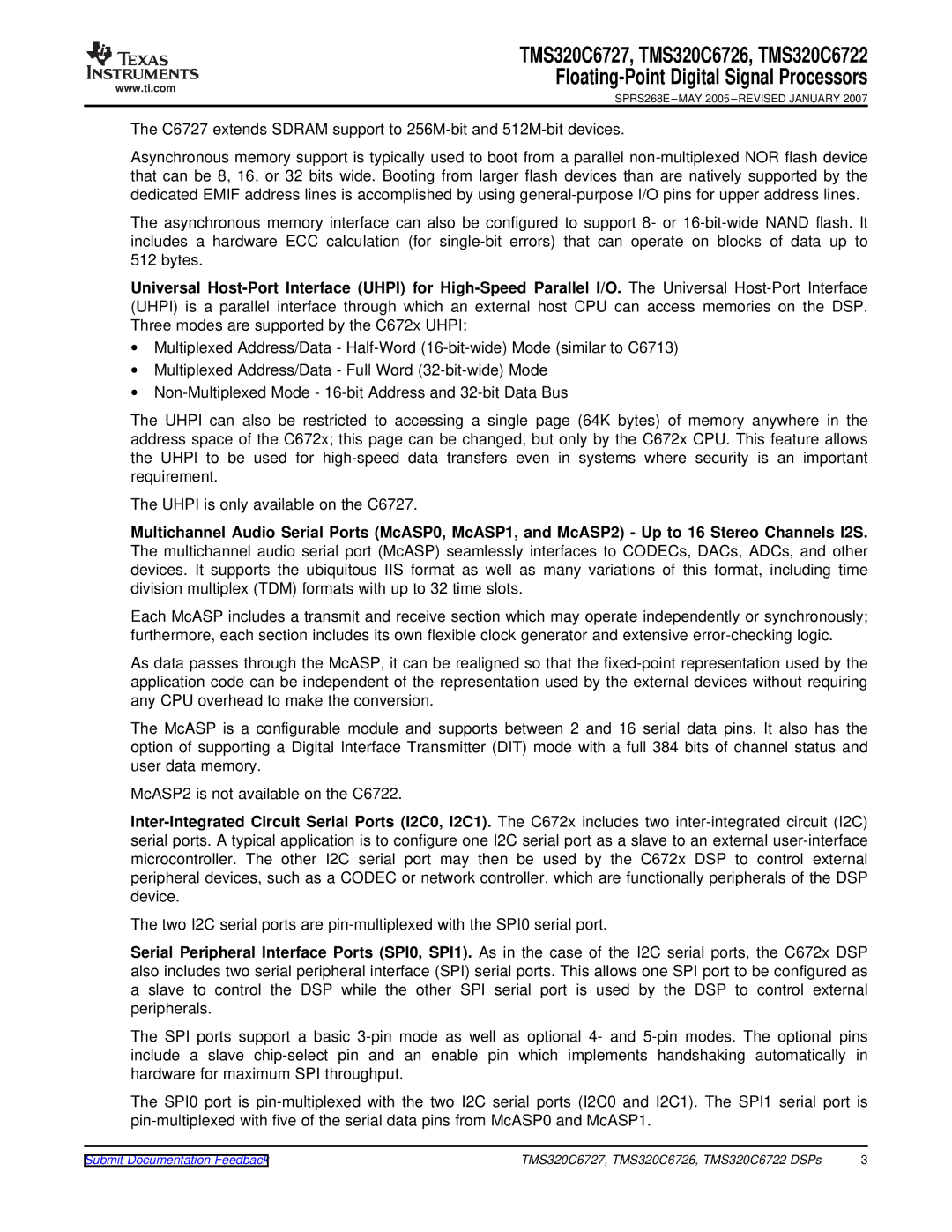
TMS320C6727, TMS320C6726, TMS320C6722
www.ti.com
SPRS268E
The C6727 extends SDRAM support to
Asynchronous memory support is typically used to boot from a parallel
The asynchronous memory interface can also be configured to support 8- or
Universal
∙Multiplexed Address/Data -
∙Multiplexed Address/Data - Full Word
∙
The UHPI can also be restricted to accessing a single page (64K bytes) of memory anywhere in the address space of the C672x; this page can be changed, but only by the C672x CPU. This feature allows the UHPI to be used for
The UHPI is only available on the C6727.
Multichannel Audio Serial Ports (McASP0, McASP1, and McASP2) - Up to 16 Stereo Channels I2S. The multichannel audio serial port (McASP) seamlessly interfaces to CODECs, DACs, ADCs, and other devices. It supports the ubiquitous IIS format as well as many variations of this format, including time division multiplex (TDM) formats with up to 32 time slots.
Each McASP includes a transmit and receive section which may operate independently or synchronously; furthermore, each section includes its own flexible clock generator and extensive
As data passes through the McASP, it can be realigned so that the
The McASP is a configurable module and supports between 2 and 16 serial data pins. It also has the option of supporting a Digital Interface Transmitter (DIT) mode with a full 384 bits of channel status and user data memory.
McASP2 is not available on the C6722.
The two I2C serial ports are
Serial Peripheral Interface Ports (SPI0, SPI1). As in the case of the I2C serial ports, the C672x DSP also includes two serial peripheral interface (SPI) serial ports. This allows one SPI port to be configured as a slave to control the DSP while the other SPI serial port is used by the DSP to control external peripherals.
The SPI ports support a basic
The SPI0 port is
Submit Documentation Feedback | TMS320C6727, TMS320C6726, TMS320C6722 DSPs | 3 |
